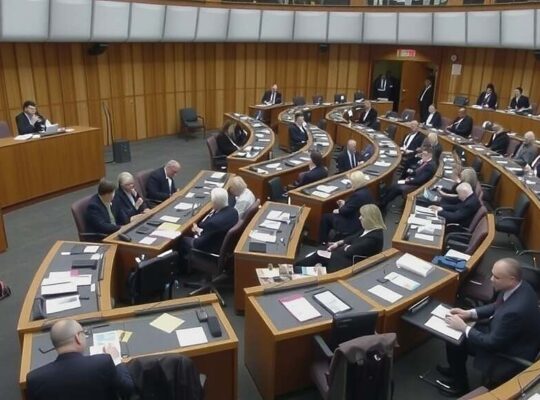The proposal by the German Institute for Economic Research (DIW) to introduce a special levy on individuals receiving higher pensions, intended to bolster the pension system, has drawn varied reactions from across the political spectrum and stakeholder groups.
The parliamentary group of the Christian Democratic Union (CDU) has expressed its opposition to the suggestion, emphasizing that addressing demographic changes should remain a shared societal responsibility. Stefan Nacke, a CDU representative on the Committee for Labour and Social Affairs, argued that any such levy should also apply to assets, warning against what he described as a “one-sided redistribution” between pensioners. He stressed the importance of maintaining trust in the principles of the statutory pension insurance system, where consistent contributions lead to a commensurate pension.
The Alternative for Germany (AfD) faction vehemently criticized the proposal, arguing that it unfairly targets both workers and now, pensioners. They claimed it creates a disincentive to work and highlighted concerns about the strain on social security systems due to factors they attribute to migration. They framed the idea as a form of “pure socialism” that discourages high earners.
The Left party, conversely, voiced support for the DIW’s idea, though with caveats. They suggested any redistribution should consider various income sources and assets, particularly targeting wealthier retirees to ensure the levy’s effectiveness. They advocated for a “genuine pension reform” as a broader solution.
The German Social Association welcomed the suggestion, calling for a broader foundation of solidarity within the pension system. While acknowledging the complexity of implementation, they expressed appreciation that the proposal avoids traditional measures like potentially reducing pension levels or raising retirement ages.
The President of the Social Association VdK similarly highlighted that the DIW study focuses on key weaknesses within the pension system. They underscored that combating poverty in old age is a societal challenge and that it shouldn’t solely rely on increased taxation of individuals receiving moderate to good pensions earned through consistent employment histories. They called for a fairer contribution from the “super-rich” to the social state.
The German Trade Union Confederation (DGB) rejected the proposal, stating it simply redistributes the problem among pensioners rather than addressing the root causes. They pointed out that the proposal would leave significant incomes such as rental income, corporate profits and interest untouched. The DGB argued that relief for contributors should come from taxing high incomes and assets.
One economic advisor noted the demographic trends placing significant strain on the pension system make the proposal worthy of discussion. He cautioned that any implementation should also include measures to curb the general growth of pension expenditures. Further analysis is needed to assess the potential impact on incentives for work and retirement.












